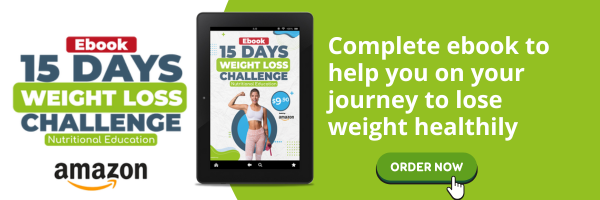Weight loss diets are everywhere, and each claims to be the most effective. Choosing the right diet can be challenging due to varying advice and recommendations. This article aims to provide a comprehensive review of nine popular weight loss diets for 2024, delving into the specifics of each and evaluating their pros and cons. We’ll cover a diverse range of diets, providing an in-depth understanding of each to help you make an informed choice.
The Ketogenic Diet: A High-Fat Approach to Weight Loss
The ketogenic (keto) diet emphasizes high-fat, moderate-protein, and very low-carbohydrate intake. This diet aims to induce ketosis, a state where the body burns fat for fuel instead of carbohydrates.
How It Works
On the keto diet, carbohydrates are restricted to 20-50 grams per day. This low level of carbs forces the body to enter ketosis, leading to increased fat burning. The diet includes high-fat foods like avocados, nuts, and cheese, with moderate amounts of protein from meat, fish, and dairy.
Pros and Cons
Pros:
- Rapid weight loss during the initial stages due to water loss and ketosis.
- Appetite suppression, which can lead to reduced caloric intake.
- Potential benefits for conditions like epilepsy and type 2 diabetes.
Cons:
- Can be difficult to maintain due to the strict carbohydrate restrictions.
- May lead to nutrient deficiencies if not properly managed.
- Potential for the “keto flu,” a collection of symptoms experienced during ketosis induction.
The Paleo Diet: Eating Like Our Ancestors
The Paleo diet is based on foods presumed to be eaten by early humans, emphasizing whole foods and excluding processed items.
How It Works
The Paleo diet promotes the consumption of lean meats, fish, fruits, vegetables, nuts, and seeds, while avoiding dairy, grains, and processed foods. This diet relies on the premise that our bodies are better suited for a hunter-gatherer lifestyle.
Pros and Cons
Pros:
- Encourages whole, unprocessed foods, which can lead to improved health markers.
- May result in weight loss due to a reduced caloric intake and increased satiety.
Cons:
- Excludes entire food groups, potentially leading to nutrient deficiencies.
- Can be more expensive due to the focus on organic and grass-fed products.
- Lacks flexibility, which might make it hard to follow long-term.
The Mediterranean Diet: A Heart-Healthy Approach
The Mediterranean diet is inspired by the eating patterns of countries bordering the Mediterranean Sea. It emphasizes whole grains, fruits, vegetables, and healthy fats.
How It Works
This diet incorporates a wide variety of foods, including fish, nuts, whole grains, fruits, and vegetables. Olive oil is a staple, providing healthy fats. The diet also allows moderate consumption of wine.
Pros and Cons
Pros:
- Proven benefits for heart health and longevity.
- Flexible and easy to maintain with a wide variety of foods.
- Supports a healthy lifestyle with moderate wine consumption and physical activity.
Cons:
- May not lead to rapid weight loss, which can discourage some individuals.
- Requires a consistent commitment to long-term dietary changes.
- Can be challenging for those who prefer a more structured diet plan.
The Atkins Diet: A Low-Carb Alternative
The Atkins diet is a low-carbohydrate approach that focuses on different phases to gradually reintroduce carbs while promoting weight loss.
How It Works
Atkins begins with a strict low-carb phase, allowing only 20 grams of carbs per day. Subsequent phases gradually increase carbohydrate intake while monitoring weight loss and maintenance.
Pros and Cons
Pros:
- Rapid weight loss in the early phases due to carbohydrate restriction.
- Flexibility in later phases as carbohydrate intake increases.
- May improve markers of cardiovascular health.
Cons:
- The strict initial phase can be difficult to maintain.
- May lead to nutrient deficiencies if not properly balanced.
- Can be high in saturated fats, raising concerns about heart health.
The Vegetarian Diet: Plant-Based for Weight Loss
The vegetarian diet excludes meat but allows for other animal-based products like dairy and eggs. It can vary in strictness based on individual choices.
How It Works
A vegetarian diet focuses on plant-based foods, including fruits, vegetables, whole grains, and legumes. Variations include lacto-ovo-vegetarian (includes dairy and eggs) and pescatarian (includes fish).
Pros and Cons
Pros:
- Associated with a reduced risk of heart disease and certain cancers.
- Can be high in fiber and low in saturated fat.
- Often leads to weight loss due to reduced caloric intake.
Cons:
- May require careful planning to ensure adequate protein and nutrient intake.
- Can be challenging in social situations where meat is a staple.
- Some processed vegetarian foods may be high in sodium and unhealthy fats.
The Vegan Diet: A Strict Plant-Based Approach
The vegan diet eliminates all animal products, including meat, dairy, and eggs. This strict plant-based approach focuses on whole foods and ethical considerations.
How It Works
Veganism relies on plant-based foods like fruits, vegetables, whole grains, legumes, nuts, and seeds. The diet avoids any animal-derived products, including honey and gelatin.
Pros and Cons
Pros:
- May lead to weight loss due to reduced caloric intake and high fiber content.
- Associated with ethical and environmental benefits.
- Proven to reduce the risk of heart disease and certain cancers.
Cons:
- Requires careful planning to ensure proper nutrient intake, especially B12 and iron.
- Can be challenging to maintain in social settings.
- Some vegan alternatives may be highly processed and unhealthy.
The Intermittent Fasting Approach: Time-Based Eating
Intermittent fasting (IF) is not a specific diet but a pattern of eating that alternates between periods of fasting and eating. It can take different forms, such as the 16/8 method or the 5:2 diet.
How It Works
In the 16/8 method, individuals fast for 16 hours and eat during an 8-hour window. In the 5:2 diet, they eat normally for five days and restrict calories to 500-600 for two non-consecutive days.
Pros and Cons
Pros:
- Can lead to weight loss due to reduced caloric intake and improved insulin sensitivity.
- Offers flexibility in food choices during eating windows.
- May have additional health benefits, such as improved brain function and longevity.
Cons:
- Can be challenging for those who prefer regular meals throughout the day.
- May lead to overeating during eating windows, negating weight loss benefits.
- Not suitable for everyone, especially those with specific medical conditions.
The DASH Diet: A Heart-Healthy Plan
The Dietary Approaches to Stop Hypertension (DASH) diet is designed to lower blood pressure but has also been used for weight loss.
How It Works
The DASH diet focuses on low-sodium foods, whole grains, fruits, vegetables, and low-fat dairy. It encourages lean protein sources and limits saturated fats and sugars.
Pros and Cons
Pros:
- Proven to lower blood pressure and improve heart health.
- Encourages a balanced diet with a variety of food groups.
- May lead to weight loss due to reduced caloric intake and healthier food choices.
Cons:
- Requires careful planning to maintain low sodium intake.
- May not lead to rapid weight loss, which could be discouraging.
- Can be challenging for those who prefer more indulgent foods.
The Flexitarian Diet: Flexible Plant-Based Eating
The Flexitarian diet is a mostly plant-based approach that allows occasional meat and animal product consumption. It offers a balance between vegetarianism and traditional diets.
How It Works
Flexitarianism encourages plant-based foods while allowing for occasional meat or animal products. It promotes a balanced diet with whole grains, fruits, vegetables, and legumes.
Pros and Cons
Pros:
- Offers flexibility in food choices, making it easier to maintain long-term.
- Encourages a balanced diet with a variety of nutrients.
- May lead to weight loss due to reduced caloric intake and increased fiber.
Cons:
- The flexibility can lead to inconsistent adherence.
- May require careful planning to avoid excessive animal product consumption.
- Not as strict as other plant-based diets, which might impact health benefits.
Choosing the Right Diet for You
Choosing the right weight loss diet depends on individual preferences, lifestyle, and health goals. Consider factors like food preferences, dietary restrictions, and long-term sustainability when deciding on a diet plan. Each of the diets reviewed above offers unique benefits and challenges, so it’s crucial to find one that aligns with your goals and can be maintained over time.
Key Considerations for Successful Weight Loss
- Consistency: Choose a diet plan that you can stick to long-term.
- Nutrition: Ensure the diet provides all essential nutrients.
- Flexibility: Select a plan that allows for flexibility to avoid burnout.
- Social Factors: Consider how the diet impacts your social life and interactions with others.










